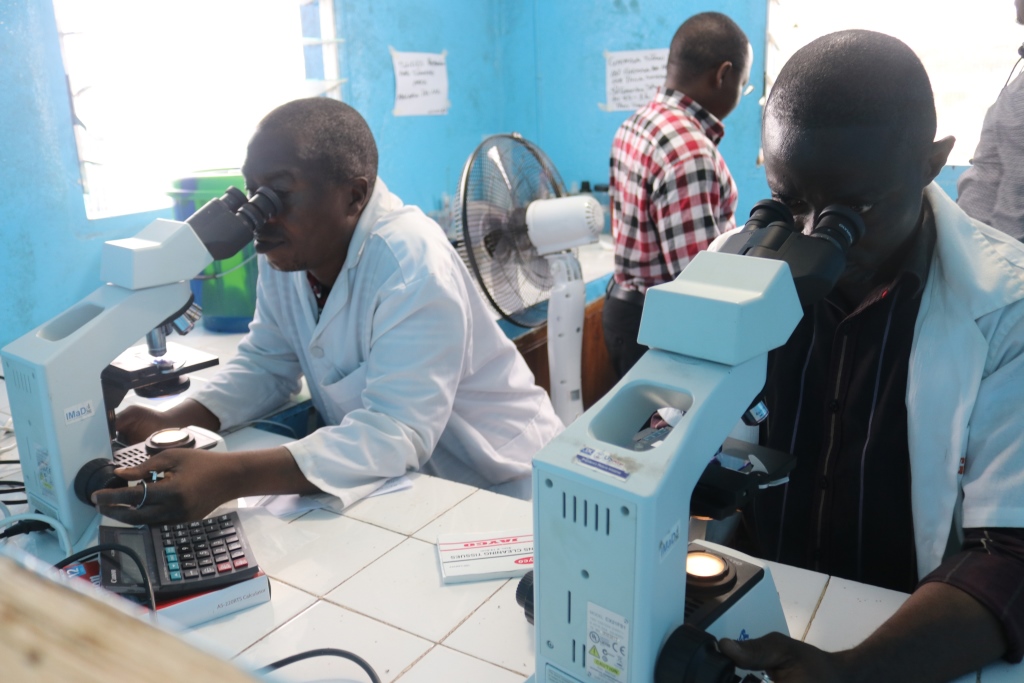Ministry of Health conducts a study to evaluate the efficacy and safety of antimalarial Medicines used in Liberia

Monrovia, December 2017: In order to ensure the effectiveness of antimalarial drugs against the malaria parasite, the Ministry of Health, with support from the Global Fund and WHO, has commenced an efficacy and safety study of Artesunate+Amodiaquine (ASAQ) and Artemether+Lumefantrine (AL) used as first line treatment for uncomplicated Plasmodium falciparum malaria.
The introduction of Artemisinin-based Combination Therapies (ACTs) since 2001 as first-line treatment for uncomplicated P. falciparum malaria has had a major impact in the steady reduction of the disease in endemic countries where it has been adopted alongside other interventions such as the use of Long Lasting Insecticide Treated Nets (LLIN) and Indoor Residual Spraying (IRS). In spite of these gains, one of the biggest threats overshadowing malaria control and elimination in recent years is antimalarial drug resistance. Protecting the efficacy of the recommended malaria treatment is a top priority for malaria endemic countries and the global malaria community. This is also in line with the World Health Organization (WHO) recommendations for continuous monitoring of the therapeutic efficacy of antimalarial medicines currently used. However, the NACP has not been able to adhere to this recommendation since 2010.
The two-arm cohort study will span over a period of 4 months (December 2017 to March 2018) in four selected health facilities within three regions in the country -Nimba, Grand Cape Mount, Margibi and Montserrado counties. A total of 88 febrile patients with confirmed uncomplicated P. falciparum malaria will be enrolled per site for each drug to monitor the clinical and parasitological parameters over a 28-day follow up period.
The primary objective of the study is to measure the clinical and parasitological efficacy of ASAQ and AL in patients aged 6-59 months, suffering from uncomplicated P. falciparum malaria. The outcome of the study will determine the proportion of enrolled children with early treatment failure, late clinical failure, late parasitological failure or an adequate clinical and parasitological response as indicators of therapeutic efficacy.
Results from the study will be used to assist the Ministry of Health of Liberia in terms of revision of the current national treatment guidelines for uncomplicated P. falciparum malaria and to update the policy, if necessary.
The Global Fund provides financial support and WHO provides both financial and technical support to the Study.
In continuation of WHO support through the provision of quality assured medicines for the study and technical support to the NMCP, a team from WHO Liberia headed by its technical Malaria Officer undertook onsite visits to evaluate the study implementation and provide technical oversight and support. During this first round of supervisory visits, from 20 to 22 December 2017, Dr. Moses Jeuronlon reemphasized the importance of the study to the teams and reassured WHO commitment towards the implementation. He however cautioned them to continuously inform the community and utilize the media for a positive study outcome.
Other members who formed part of the supervisory site visits were the study principal investigator Dr Benjamin Vonhm, co-investigators, study site coordinators and the site managers. The National Malaria Control Program (NMCP) coordinates and oversees the study in Liberia.
For more information, please contact:
Technical:
Dr. Moses Jeuronlon
AIDS, TB and Malaria Technical Officer
+231770183989
jeuronlonk [at] who.int (jeuronlonk[at]who[dot]int)


